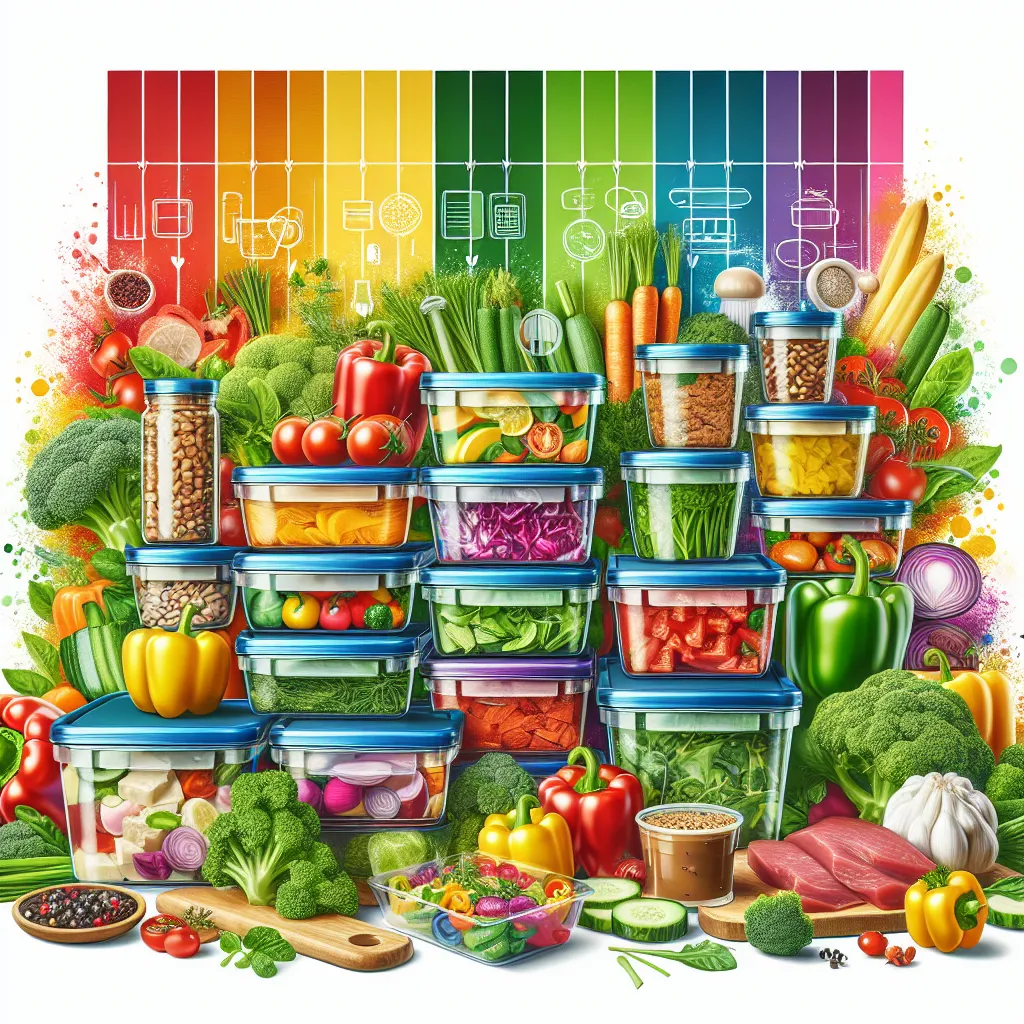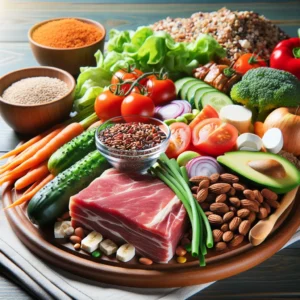The Benefits of Meal Planning: How It Saves Time and Money
Meal planning is a crucial aspect of maintaining a healthy and organized lifestyle. More than just a time-saving strategy, it also brings about a myriad of benefits, including saving both time and money. By planning your meals in advance, you can streamline your grocery shopping, as you will only purchase the items you need for the upcoming week’s recipes. This approach not only cuts down on impulse purchases but also reduces food waste, as you are less likely to buy perishable items that may go unused. Additionally, having a well-thought-out meal plan minimizes the need for last-minute takeout or dining out, which can be significantly more expensive than home-cooked meals. Ultimately, meal planning empowers you to make cost-effective choices and helps you make the most of your valuable time.
Simple and Healthy Recipes for Busy Weekdays
When it comes to meal planning for busy weekdays, simple and healthy recipes are a lifesaver. With the hustle and bustle of daily life, it can be challenging to find the time and energy to prepare nutritious meals. However, with the right approach, meal planning can simplify your weekly menu and ensure that you and your family are eating well-balanced and satisfying dishes.
Opt for recipes that focus on lean proteins, whole grains, and plenty of vegetables. One-pot meals, such as stir-fries and soups, are not only convenient but also allow for a variety of ingredients to come together in one dish. Consider preparing a large batch of quinoa or brown rice at the beginning of the week to use as a base for different meals. Incorporating a colorful array of vegetables not only adds flavor and texture but also ensures that you’re getting a wide range of nutrients.
Additionally, embracing the use of simple cooking techniques, such as roasting, steaming, and sautéing, can streamline the cooking process. These methods often require minimal preparation and result in delicious, healthful meals. For example, roasted vegetables with a sprinkle of herbs and olive oil can be a fantastic side dish or a filling for a wrap or bowl.
Finally, don’t underestimate the power of leftovers. When preparing dinners, consider making extra servings that can be enjoyed for lunch the next day. This approach not only saves time but also reduces food waste. Soups, stews, and hearty salads often taste even better the following day, making them an ideal option for a quick and satisfying meal.
By focusing on simple and healthy recipes for your weekly meal planning, you can alleviate the stress of weekday cooking while prioritizing your health and well-being.
Efficient Grocery Shopping: Tips for Stocking Your Kitchen Wisely
Efficient grocery shopping is a crucial aspect of successful meal planning, enabling you to stock your kitchen wisely without overspending or wasting food. To streamline your shopping experience, start by creating a detailed list of items you need based on your weekly menu. This will help you stay focused and reduce the likelihood of impulse purchases.
Another important tip for efficient grocery shopping is to take stock of your pantry, fridge, and freezer before heading to the store. This allows you to avoid buying duplicate items and ensures that you utilize ingredients you already have on hand. Additionally, consider versatile ingredients that can be used in multiple recipes to minimize the number of different items you need to purchase.
It’s also beneficial to explore local farmer’s markets or bulk food stores for fresh produce and pantry staples at reasonable prices. Buying in bulk can be cost-effective and reduces the frequency of shopping trips. Furthermore, consider utilizing online grocery shopping and delivery services to save time and energy, especially for non-perishable items.
By employing these efficient grocery shopping strategies, you can establish a well-stocked kitchen that facilitates seamless meal preparation and minimizes food waste, ultimately enhancing the effectiveness of your meal planning endeavors.
Mastering the Art of Batch Cooking for Stress-Free Meals
Mastering the art of batch cooking is a crucial aspect of simplifying your weekly meal planning. This method involves preparing larger quantities of food at once, which can then be portioned out and stored for later use. By dedicating a few hours at the beginning of the week to batch cooking, you can save time and reduce the stress of preparing meals on a daily basis. Not only does batch cooking streamline the cooking process, but it also allows for better organization and control over the nutritional content of your meals.
Batch cooking enables you to prepare versatile components such as cooked grains, proteins, and roasted vegetables, which can then be mixed and matched to create a variety of dishes throughout the week. This approach not only promotes a healthier diet, but it also minimizes food waste by ensuring that all ingredients are utilized efficiently. Additionally, batch cooking provides the convenience of having pre-prepared, wholesome meals readily available, reducing the temptation to opt for less nutritious fast food or takeout options.
Furthermore, embracing batch cooking empowers individuals to explore different cuisines and experiment with new recipes, as the foundational elements are already prepared. This can lead to a more diverse and enjoyable eating experience for you and your family. By integrating batch cooking into your meal planning routine, you can pave the way for stress-free, delicious, and nourishing meals throughout the week.



